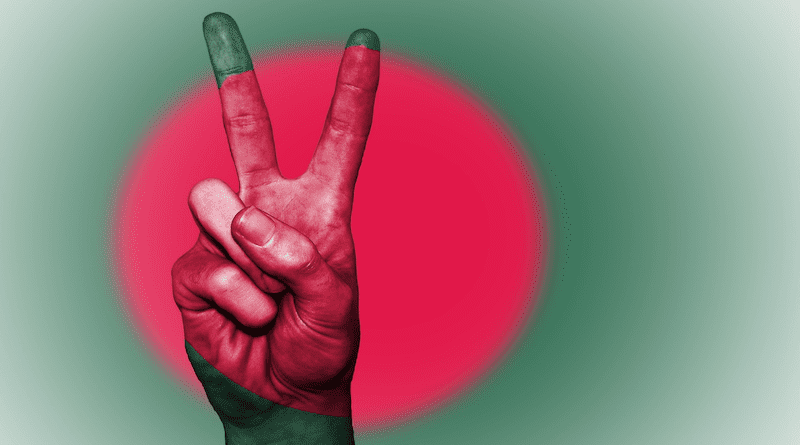Bangladesh: State Power And Suppression Of Intellectuals, Critics, and Journalists – OpEd
By Dr. Sahibzada Muhammad Usman
Human rights violations are globally recognized as breaches of fundamental principles that every individual should enjoy irrespective of nationality, sex, ethnicity, race, religion, or any other status. However, when these violations become state-sponsored, systematically targeting specific groups such as opposition parties, intellectuals, critics, and journalists, they tend to undermine democratic norms, rule of law, and social cohesion.
In recent years, the Bangladeshi government has faced serious criticism due to an escalating state-sponsored repression of human rights, affecting citizens’ liberties and violating international human rights standards. From the crackdown on freedom of speech to extrajudicial killings and attempts to suppress the freedom of assembly, Bangladesh’s current situation raises deep concern for international human rights organizations and activists alike.
Firstly, the persecution of opposition parties in Bangladesh is a critical concern. The ruling Awami League-led government has allegedly been involved in various actions aimed at suppressing the opposition, limiting the potential for a fair and democratic political discourse. Instances of arbitrary arrests and ill-treatment against opposition members under the cover of maintaining law and order have become commonplace. Such actions violate the principles of free and fair elections, free speech, and the right to participation in public affairs, enshrined in the Universal Declaration of Human Rights.
Secondly, the issue of extrajudicial killings has also come under the spotlight in Bangladesh. The Rapid Action Battalion (RAB), a specialized anti-crime and anti-terrorism unit, has been alleged to partake in such acts. The severity of the issue led to the imposition of the US Global Magnitsky human rights sanctions against the RAB and some of its top commanders in December 2021. These sanctions are a potent testament to the international concern over the violation of the right to life, liberty, and security of persons guaranteed under Article 3 of the Universal Declaration of Human Rights.
The RAB’s involvement in extrajudicial killings and enforced disappearances is a clear manifestation of state-sponsored human rights violation, undermining the very ethos of democracy and rule of law. This blatant disregard for due process and fundamental rights is not only a violation of international law but also exacerbates a culture of impunity, undermining public trust in the institutions that are supposed to protect them.
Thirdly, the systematic targeting of intellectuals and critics in Bangladesh is an alarming trend. The utilization of the Digital Security Act to crack down on dissenting voices is a testament to this fact. Under this Act, individuals who critique or question government policies are being subjected to intimidation, harassment, and in some cases, arrests. Such actions are a direct assault on freedom of thought and expression and violate the basic human right to hold opinions without interference.
The severe and ongoing repression of journalists is another grave human rights concern in Bangladesh. The media, referred to as the ‘Fourth Estate’, plays a pivotal role in a functioning democracy, holding power to account, disseminating information, and facilitating public discourse. However, the prevailing climate of fear and censorship in Bangladesh has constrained the media’s role, with numerous reports of journalists facing intimidation, threats, and even physical attacks. This persistent crackdown on journalists not only infringes upon the right to freedom of expression but also impedes the public’s right to access information.
According to the Cambridge University article, “one of the major questions still to be addressed is the threshold beyond which a violation of human rights results in an obligation to prosecute”. This statement is crucial as it emphasizes the international community’s role in holding states accountable for gross human rights violations.
In this context, gross human rights violations committed by the Bangladeshi government against opposition parties, intellectuals, critics, and journalists indicate a need for international scrutiny and action. The path to restoring respect for human rights in Bangladesh lies in both national reform and international pressure. Nationally, the Bangladeshi government must take immediate steps to halt these violations, repeal repressive laws like the Digital Security Act, and foster an environment that allows for free expression and political pluralism. Internationally, human rights organizations, foreign governments, and global civil society should bring concerted pressure on Bangladesh to fulfill its obligations under international human rights law.
Ultimately, the state-sponsored human rights violations in Bangladesh involving the suppression of free speech, involvement in extrajudicial killings, and curtailment of the freedom of assembly indicate a distressing human rights situation. While the Bangladeshi government has the sovereign right to maintain national security, it is essential that it does so in adherence to international human rights standards. Upholding the principles of democracy, including the respect for fundamental human rights, is a non-negotiable obligation of any government, and it is high time for Bangladesh to take decisive steps to rectify these ongoing violations.
Dr. Sahibzada Muhammad Usman, Research Scholar and Academic; Ph.D. in Political Science at the University of Pisa, Italy. Dr. Usman has participated in various national and international conferences and published 30 research articles in international journals.

